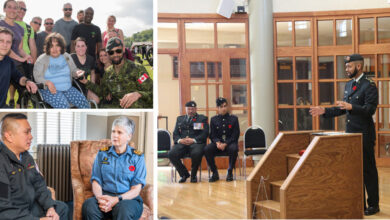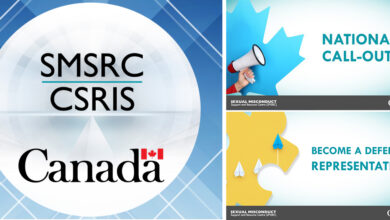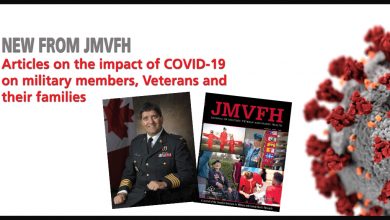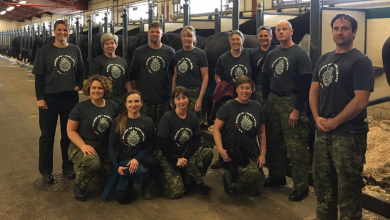Helpful Resources
Top Six Mistakes Military Job Searchers Make on Their Résumés
After critiquing dozens of résumés following the National Transition Exchange last week in Ottawa, I have noticed some trends. There are six common mistakes I saw military job seekers making over and over – mistakes that may prevent them from getting the interview that will lead to their dream job. These are:
1. Jargon.
Well, this shouldn’t come as a surprise. It is also the number one concern of military clients when they contact me: they just don’t know how to talk about their military career without using a lot of military-specific words.
However, if you want a hiring manager to understand your experience, you must translate it first. It really is like another language. Think of equivalencies. Focus on leadership and discipline with words like mentoring, efficiency, and workload planning. Replace platoon or squad with “team,” and job titles like tank crewmember, with “heavy equipment operator.” Also, do your best to avoid acronyms. Even if you write them out the first time, overuse makes for difficult reading.
2. Lack of Focus.
If you can’t figure out what kind of job you want, how do you expect a prospective employer to know where to put you? While it is no longer recommended to include an ‘Objective’ on your résumé (I promise to blog about this another day), you can use a ‘Summary of Qualifications’ or ‘Profile’ section to outline what you offer to a potential employer. This section should be tweaked for every application, so it speaks directly to the job requirements.
3. Writing Your Career Obituary.
Too many of the résumés I critiqued were what I call obituary résumés. They list job duties, tasks, and responsibilities, practically cut and paste from a job description. It is such a lost opportunity.
You need to remember that employers want to hire employees who can produce results, and that past performance is the best indicator of future success. Don’t talk about what you were responsible for. Tell them what you accomplished. Use numbers or concrete project examples to quantify your results. Clarify the scope of your responsibilities and accomplishments, with actual dollar amounts (estimates are fine if you can qualify them), percentages of savings, number of employees, and dollar values of equipment managed.
4. Not Standing Apart from the Crowd.
Don’t rely on résumé templates if you want to maximize your chances of catching a hiring authority’s attention. One size does not fit all when it comes to creating a document that best showcases your skills. Any HR coordinator, any recruiter can immediately recognize a résumé created with Microsoft Word’s “wizard” feature. You need to be able to lead with your strengths. Recent graduates might want to start with the “Education” section instead of “Experience.” If you are making a major career switch, you might want to highlight volunteer work first. Cookie-cutter résumés do not generate job-winning interviews.
5. Giving Too Much Information.
A two-page résumé is more than adequate for 90 percent of the population. Three pages are forgivable if you are a senior candidate applying for a job with a long list of requirements. Even then, any experience more than 15 years old can be heavily summarized, sometimes even omitted.
Remember why you are writing a resume in the first place: you want to get the employer’s attention during that critical 20-30 second first look. You want them to want to know more and call you in for an interview. You want to do that in a concise, visually appealing way.
6. Typos: Spelling Errors. Excessive Capitalization. Incorrect Verb Tenses. Etc.
Everyone talks about typos and spelling. Proofread, proofread, and then proofread again. Then get a friend to do it for you.
Spell check is good. Grammarly is even better. But you know what spell check doesn’t always pick up? When you use different verb tenses in each sentence. Or when you capitalize every important word in a sentence.
You might need to review your basic grammar. Don’t worry; you don’t need to take a course. Google can help. Use capital letters on actual job or department titles, but not general references. Director of Transportation vs. transport staff. Course titles should be capitalized (“History of Western Civilization”), but general areas of expertise (“assisted with Marketing and Sales functions”) should not.
Does your resume include one or more of these errors? Will it stand up to a critique? Job seekers interested in a free resume review can contact me through my website, www.bestfootforward.co, or by sending their résumé to [email protected], as an e-mail attachment.










